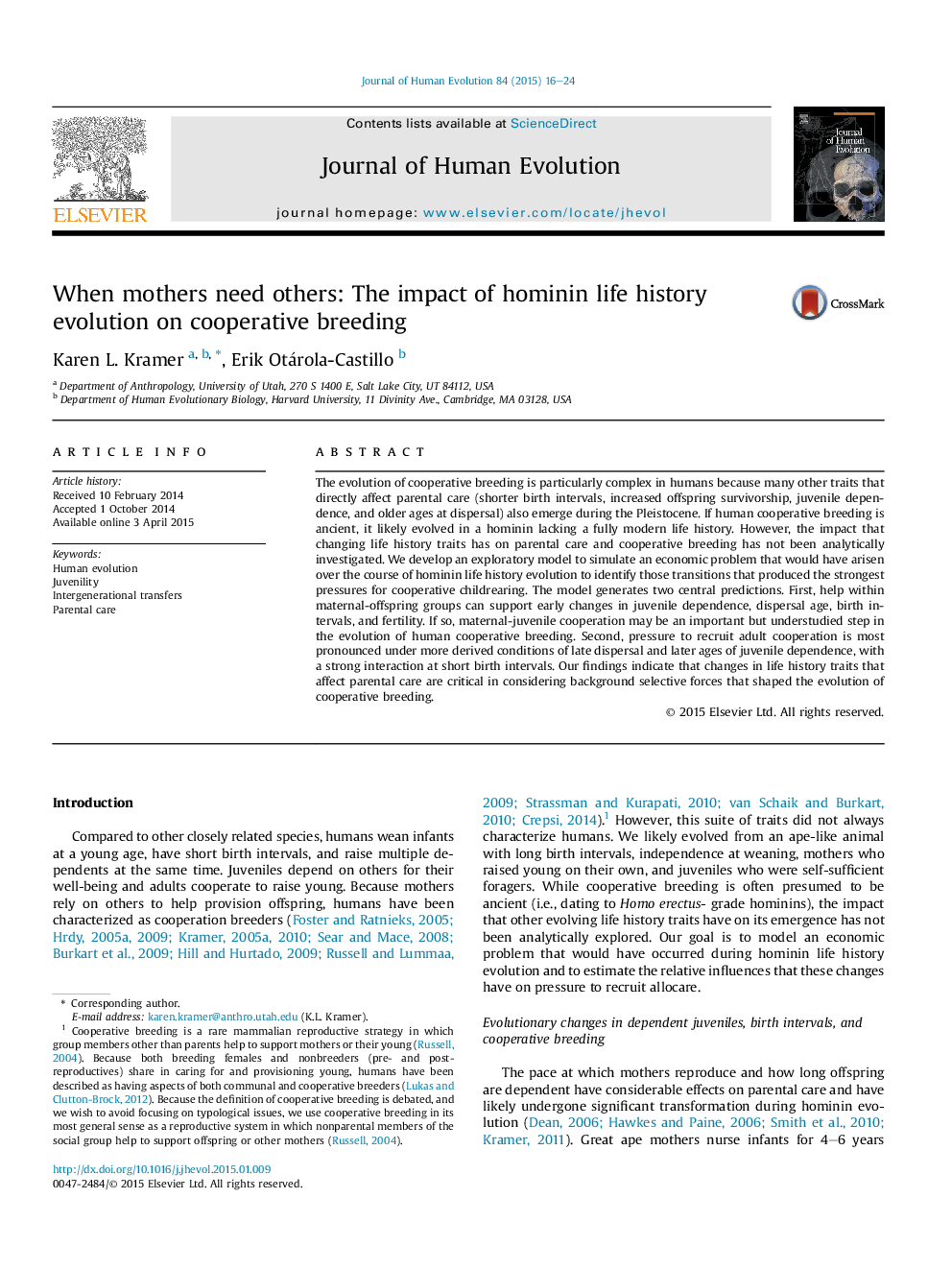| کد مقاله | کد نشریه | سال انتشار | مقاله انگلیسی | نسخه تمام متن |
|---|---|---|---|---|
| 4555956 | 1628165 | 2015 | 9 صفحه PDF | دانلود رایگان |
The evolution of cooperative breeding is particularly complex in humans because many other traits that directly affect parental care (shorter birth intervals, increased offspring survivorship, juvenile dependence, and older ages at dispersal) also emerge during the Pleistocene. If human cooperative breeding is ancient, it likely evolved in a hominin lacking a fully modern life history. However, the impact that changing life history traits has on parental care and cooperative breeding has not been analytically investigated. We develop an exploratory model to simulate an economic problem that would have arisen over the course of hominin life history evolution to identify those transitions that produced the strongest pressures for cooperative childrearing. The model generates two central predictions. First, help within maternal-offspring groups can support early changes in juvenile dependence, dispersal age, birth intervals, and fertility. If so, maternal-juvenile cooperation may be an important but understudied step in the evolution of human cooperative breeding. Second, pressure to recruit adult cooperation is most pronounced under more derived conditions of late dispersal and later ages of juvenile dependence, with a strong interaction at short birth intervals. Our findings indicate that changes in life history traits that affect parental care are critical in considering background selective forces that shaped the evolution of cooperative breeding.
Journal: Journal of Human Evolution - Volume 84, July 2015, Pages 16–24
